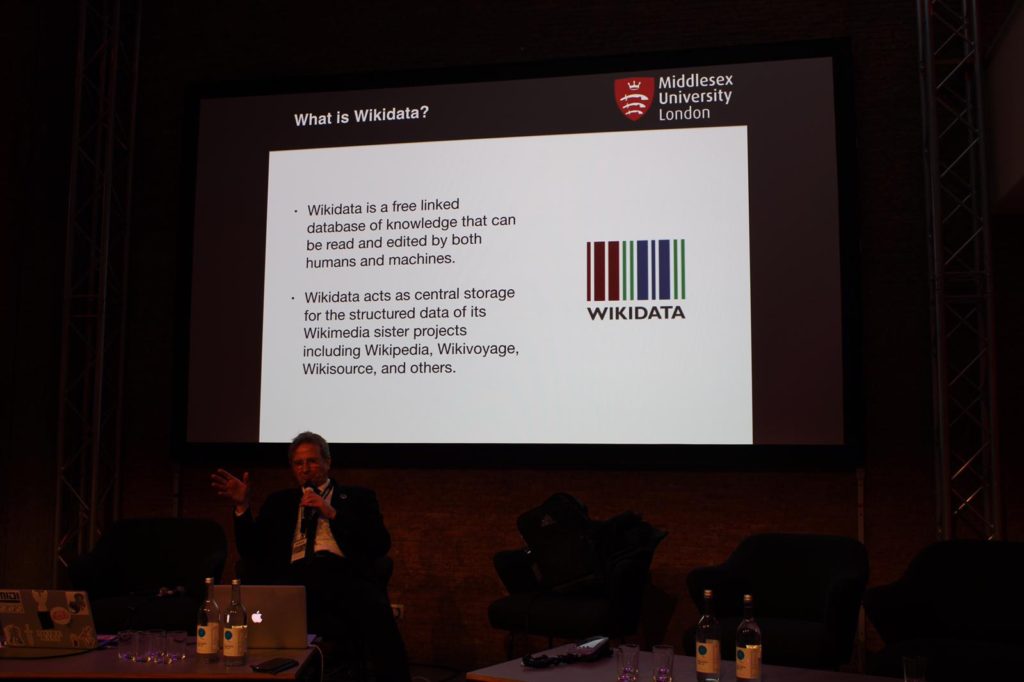
Think Pink? – Cybersalon on Tour
Transmediale 2019 Explores ‘Structures of Feeling’ in Digital Culture
Stefan Lutschinger (Cybersalon) visits transmediale’s new Student Forum with BA Digital Media and BA Media and Cultural Studies students from Middlesex University.
From January 31 to February 3rd, artists and theorists from around the world gathered in Berlin at the Haus der Kulturen der Welt for the 30th edition of transmediale, one of Europe’s biggest festivals for art and digital culture, with over 200 participants and 25,000 visitors. The theme of transmediale 2019 focused on the role of emotions and empathy and their cultural emergence within digital cultures, inspired by Raymond Williams’ notion of the “structure of feeling” which aims to facilitate an understanding of “affective elements of consciousness and relationships”.
Tabita Rezaire, Deep Down Tidal (2017)
CTM 2019 Exhibition – Persisting Realities
Questions ranged from “What moves you?”, to explorations of the complex processes by which feelings embed themselves in digital media and become technological objects. Thus, artistic director Kristoffer Gansing and his curatorial team featured discursive and performative formats such as the new transmediale Study Circles, and decided to forgo an exhibition in favour a Study Circle Library set up at Haus der Kulturen der Welt. Designed by Ebba Fransén Waldhör, whose light installation immersed the entire HKW in shades of pink light, the library invited the public to delve into the texts and theories, which served as references for the working process of the Study Circles. The focus on human learning in the age on AI and machine learning was also reflected by the new transmediale Student Forum, which preceded the main festival. This new engagement format expanded and deepened the festival visit for student groups, with the aim not only to facilitate the exchange of different knowledge bases and methodologies, but also to reimagine what a future hybrid media education might look like.

In our presentation at the Student Forum “Wikidata in Higher Education: Opening Minds with Open Data”, my student group and I presented a range of Wikipedia and Wikidata assessments from my BA Digital Media and BA Media and Cultural Studies courses at Middlesex University, which we developed in our educational partnership with Cybersalon. Over the last five years, Cybersalon has been facilitating workshops at Middlesex University with Wikimedia experts such as Edward Hands, Ed Sapiera and Fabian Tompsett, and hosting edit-a-thons on Ada Lovelace Day and International Women’s Day. Our latest joint initiative introduces students to Wikidata, a free linked database of knowledge that can be read and edited by both humans and machines and which acts as central storage for the structured data of its Wikimedia sister projects including Wikipedia, Wikivoyage, Wikisource, and others. Navino Evans, co-founder of histropedia.com, helped students create an interactive Wikidata visualisation of all notable Middlesex University alumni who have Wikipedia pages, and to “play Lego” with the Urban history of the London Docklands in a workshop at Furtherfield Commons.
Interactive data visualisation of all notable Middlesex graduates with Wikipedia pages, inspired by the Vice Chancellor’s #MadeInMiddlesex campaign.
We are grateful for the constructive feedback from our Student Forum peers and the panel moderators, and especially to Michael Dieter for pointing us to the reader “Critical Point of View: A Wikipedia Reader” edited by Geert Lovink and Nathaniel Tkacz, and “Wikipedia and the Politics of Openness” also by Nathaniel Tkacz, which has opened up a range of new perspectives which we look forward to exploring in future projects.
Stefan Lutschinger is Programme Leader BA Digital Media and BA Media and Cultural Studies at Middlesex University.




